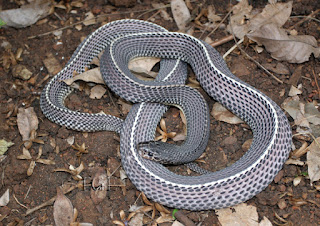Why are small dogs so fierce? - Californianewstimes.com

Dogs such as Rottweilers and Pitbulls with large, muscular bodies, especially dogs trained to intimidate, may look like the scariest dogs of this species.But the evidence shows that it is smaller dog In reality, it can be more aggressive than their oversized opponents.
So why are small dogs so ferocious?
First, it's important to define what's small for your dog. "Small dogs under 20 pounds [9 kilograms] "The range tends to be more responsive," said James Serpel, director of the Center for Animal-Social Interactions, University of Pennsylvania, Veterinary Medicine. For example, Daxfund, Chiwawa, and Jack Russell Terrier. Chew, according to a 2008 study in the journal Applied Animal Behavioral Science We surveyed the owners of more than 30 breeds. Other aggressive behaviors found in small dogs include growls, growls, and rushes. There are several theories as to why this is the case.
Relation: Why do dogs and cats run around at random speeds?
Smaller sizes make dogs more scared and can rampage for self-defense, Serpel said. Small varieties are often afraid and are more likely to react defensively.
Alternatively, the responsiveness of small dogs may be the result of their owner's behavior. "Owners tend to toddler small breeds and think of them as helpless toddlers," Serpel told Live Science. Pet owners may be overprotecting small breeds. As a result, they may not be able to interact with them or teach them how to respond appropriately to stressful situations.
Aggression can also be burned into the puppy's body. evolution"The impact of a Chihuahua attack is clearly less than that of a Great Dane or Siberian Husky," says Serpel. In other words, humans may not have been concerned about producing aggressive behavior from small dogs, as the consequences were not as dire as if they were attacked by a large hound for thousands of years.
The last theory is Links between aggressive behavior and growth factor genes That makes small dogs smaller. This association may be a coincidence, but research has shown that small dogs do not only have extreme aggression-related behaviors. Compared to large dogs, small dogs tend to have more serious separation anxiety, usually bark more often, and are more likely to urinate at home, Serpel said. This gives credibility to the theory that genetics is involved in the extreme behavior of small dogs.
Scientists haven't yet studied the roots of the violent behavior of small dogs, so they're not sure which theory is right, Serpel said. All theories can play a role.
Some small varieties are exceptions to the rule. One example is Coton de Tulear, also known as the Royal Dog of Madagascar. This dog is small, white and fluffy, similar to Bichon Frize.
"For some reason, the breed seems to behave very calmly overall, but it also has all sorts of medical problems," Serpel said. "It's critical. It's unclear if the reason may be missing. genetically factor. Alternatively, they may be related to the fact that they are unhealthy and have a lower ability to react strongly physically. "
Some aggressive behaviors can be safely addressed while living with your dog, but you need a professional dog trainer to correct them. According to the American Veterinary Center (VCA), veterinary hospital system.
Body size may not be the only attribute of small dogs related to aggression.According to a 2013 study in the journal, short stature alone is associated with unwanted traits in some varieties. Pro SwanFor example, short-legged breeds tend to be afraid of strangers and their owners tend to behave aggressively. It's unclear why this happens, but it may be something to keep in mind when looking for your next pet.
Initially published in Live Science.



Comments
Post a Comment